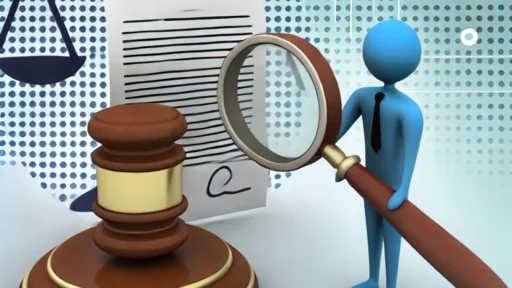In the realm of legal discovery, the deponent plays a pivotal role, often serving as the cornerstone of a case. Deposition preparation is crucial, as attorneys gather witness testimony under oath, and the deponent’s responses can significantly influence the direction of a case. Understanding the deponent’s responsibilities and their role can help demystify this complex legal procedure.
What is a Deposition?
A deposition is a fundamental part of the pre-trial discovery, where witnesses provide sworn testimony.
Legal Definition
A deposition involves taking sworn, out-of-court oral deposition testimony from a witness, which is later transcribed for use in court. Governed by procedural deposition rules, depositions allow parties to gather evidence, assess witness management credibility, and preserve testimonies for trial. Uniform rules ensure standardized practices across jurisdictions.
Purpose of a Deposition
Depositions serve several key purposes:
- Fact Gathering: They help attorneys gather facts and build a case strategy by obtaining detailed testimonies.
- Witness Evaluation: Depositions witness enable the evaluation of a witness’s demeanor, such as body language and tone, which helps gauge credibility.
- Information Preservation: They preserve crucial information, ensuring that testimonies remain accessible if a witness becomes unavailable during trial.
- Facilitating Settlements: The depositions videographer facilitates settlement negotiations by providing a clearer picture of the case’s strengths and weaknesses.
Deponent Meaning
In a deposition, the deponent provides crucial information that shapes the legal depositions process. Their testimony directly influences case strategies and outcomes.
Role and Responsibilities of a Deponent
The deponent answers questions under oath during depositions in litigation. They provide firsthand information about the case facts, helping attorneys build their arguments. Their testimony is used to gather evidence, evaluate witness credibility, and assist in settlement negotiations. The deponent is responsible for being truthful and detailed in their answers, as their statements are recorded and may be used in court.
Qualifications and Selection of a Deponent
A deponent is typically someone with relevant knowledge about the case. Attorneys select deponents based on their direct involvement or witness capacity. The qualifications for being a deponent include understanding the case context and being able to provide clear and accurate testimony. Legal deposition representatives often choose individuals whose testimony could significantly impact the case direction, such as parties to the case, eyewitnesses, or experts in a related field.
Preparing the Deponent
Deponents play a pivotal role in in-person depositions, so thorough preparation is essential. Effective preparation involves legal guidance and comprehensive document review.
Legal Guidance
Attorneys provide legal guidance to ensure deponents understand the deposition process and their responsibilities. They explain legal terms, procedures, and the importance of giving accurate and truthful answers. Attorneys also outline potential questions and advise on handling difficult or unclear inquiries, helping deponents remain composed and focused during the Written deposition.
Document Review
Deponents must review relevant documents such as emails, contracts, video conference deposition, and reports. Attorneys guide this review to identify key information that might arise during questioning. Understanding these documents ensures deponents can respond accurately and confidently to questions about the case’s facts and details.
During the Deposition
Deponents play a central role during the deposition, providing essential information through their testimony. Key elements include the questioning process and handling objections.
Questioning Process
Attorneys take turns asking questions to gather relevant facts. The deponent answers under oath, ensuring responses are truthful and accurate. Counsel may pose open-ended questions, like “Can you describe your role in the project?” or closed-ended ones, like “Did you sign this contract?” Deponents must listen carefully and answer only what is asked to avoid misinterpretation.
Handling Objections
Attorneys might raise objections to certain questions. Common deposition objections include relevance, form, or privilege. The deponent pauses while attorneys address the objection but listens for further instructions. They may still have to answer if the objection is noted but overruled. Knowing these scenarios helps a deponent remain composed and clear.
After the Deposition
Once the deposition concludes, specific steps ensure the process progresses smoothly.
Reviewing the Transcript
Deponents receive a transcript of the deposition, usually within weeks. This document contains every word spoken during the session. They must meticulously review it for accuracy. Any errors noticed should be reported immediately to correct the record. Accuracy in this deposition transcription is vital as it can be used in trial.
Post-Deposition Procedures
After reviewing the transcript, the deponent might receive follow-up questions or requests for additional information. They need to respond promptly to maintain the timeline of the legal process. Additionally, deposition lawyers analyze the deposition to adjust their case strategies, identify new leads, rethink earlier assumptions, or plan further depositions. The deponent might be called for additional testimony if necessary. Prompt response and clear communication with legal counsel remain crucial to ensure case resolution.
Ensure Your Deposition Success with BlueNotary’s Reliable Notarization Services
Understanding the deponent’s role in a deposition Exhibit is vital for anyone involved in legal proceedings. Their firsthand information can significantly shape case outcomes. Proper preparation and clear communication with legal counsel ensure that deponents provide accurate and reliable testimony.
Understanding the role of a deponent and preparing for a deposition is crucial for legal success. BlueNotary offers a secure and efficient online notarization platform, ensuring all your documents are authenticated and legally binding.
Prepare effectively and manage your depositions with confidence. Sign up today to streamline your notarization needs and support your legal journey. BlueNotary: Your trusted partner in ensuring a successful and well-prepared deposition process!
Frequently Asked Questions About the Deponent Role
Q1. What does “deponent” mean in legal terms?
In legal terms, a deponent is an individual who provides sworn testimony during a deposition of the ethics of a lawyer. This testimony is given under oath and recorded for use in legal proceedings.
Q2. What are the responsibilities of a deponent?
A deponent’s responsibilities include answering questions truthfully and accurately, providing relevant documents if requested, and maintaining professionalism throughout the deposition advice process.
Q3. How should a deponent prepare for a deposition?
Preparation involves reviewing relevant case documents, understanding the key issues, consulting with their attorney, and practicing potential questions and answers to ensure clarity and confidentiality with the lawyer.
Q4. Why is the deponent’s testimony important in a legal case?
The deponent’s testimony can provide crucial information, clarify facts, and offer insights that may influence the direction and outcome of a legal case. It is a critical component of the discovery process.
Q5. What should a deponent expect during a deposition?
During a deposition, a deponent should expect to be questioned by attorneys from both sides, have their responses recorded, and be required to provide honest and complete answers under oath.








